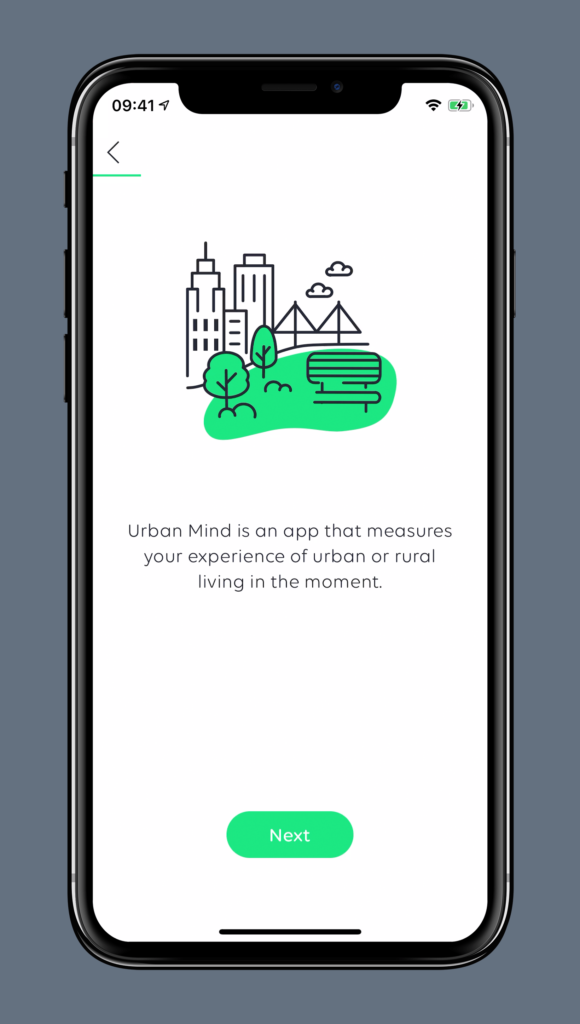A walk around GOOD Botanics' community garden
13/10/2021
Tucked away behind Bethnal Green station, there’s a community garden that’s making a big difference. It may not look remarkable but nothing there is ornamental, everything is useful. The space is called Phytology and it is managed by Michael Smythe, the artist, urban farmer and co-founder of GOOD Botanics. Michael invited us for a walk around the garden to explore the many community projects they’re running, the products that come out of the garden and the impact that GOOD Botanics and Michael’s associated projects create both locally and nationally. October is Mental Health Awareness month, so while the weather may be more changeable, there’s really no better time to talk about the links between nature and nourishment, planetary and human health.
We recently took a walk through the garden with Michael and asked him a few questions.
The beginnings of GOOD Botanics
How did you and Molly Maitland meet and set up the social enterprise?
The Phytology medicine garden was established back in 2012, officially opening to the public in 2014. Molly joined the horticultural team in 2014, contributing her experience as a Medical Herbalist, guiding our audiences’ knowledge and day to day use of the herb grown in the space. This biomedical knowhow was essential for building community confidence, knowledge and connection with the garden.
How did that lead to the GOOD Botanics line of products?
Molly & I started hosting monthly medicine making workshops at the Phytology medicine garden, creating opportunities for people to learn how to identify medicinal plants, while also learning harvesting and traditional medicine making techniques. This is how GOOD Botanics evolved. We initially started making our signature product GOOD Skin, which became one of those household products that people around the neighbourhood began to really love. The growing demand of GOOD Skin was the catalyst for starting GOOD Botanics.
GOOD Botanics are founded on the permaculture principles of earth care, people care and fair share. Molly & I strive to make simple, high quality, plant based products that will stay in your home for life.
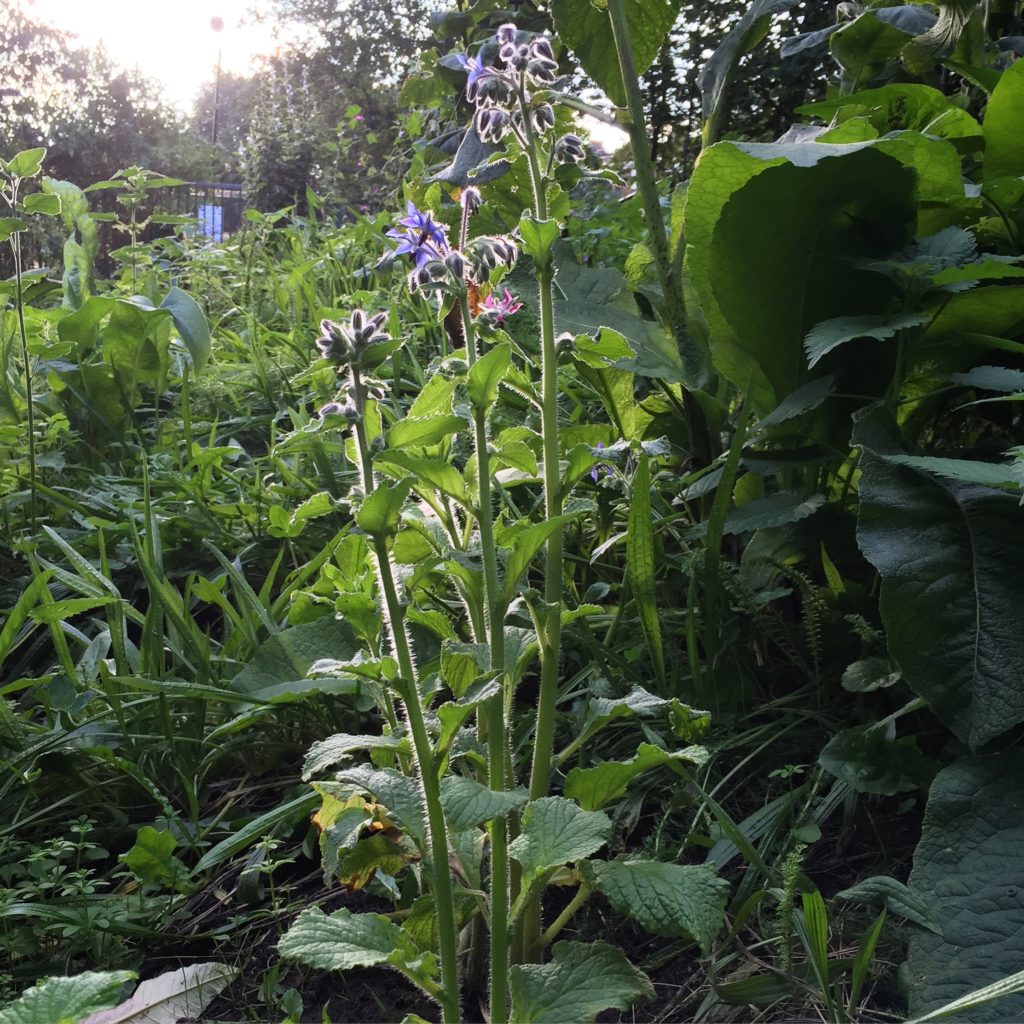
The Phytology community garden
The community medicine garden project is called Phytology. How does GOOD Botanics work with Phytology and your other projects?
Phytology is an artist and community-led project exploring the environmental and social complexities of the urban landscape. The garden is open to the local community to access and enjoy in exchange for caring for the site. It’s a multi-layered and complex piece of land that has been secured for a range of projects — for habitat protection and enhancement work, to cultural research and events, to urban farming and medicine production.
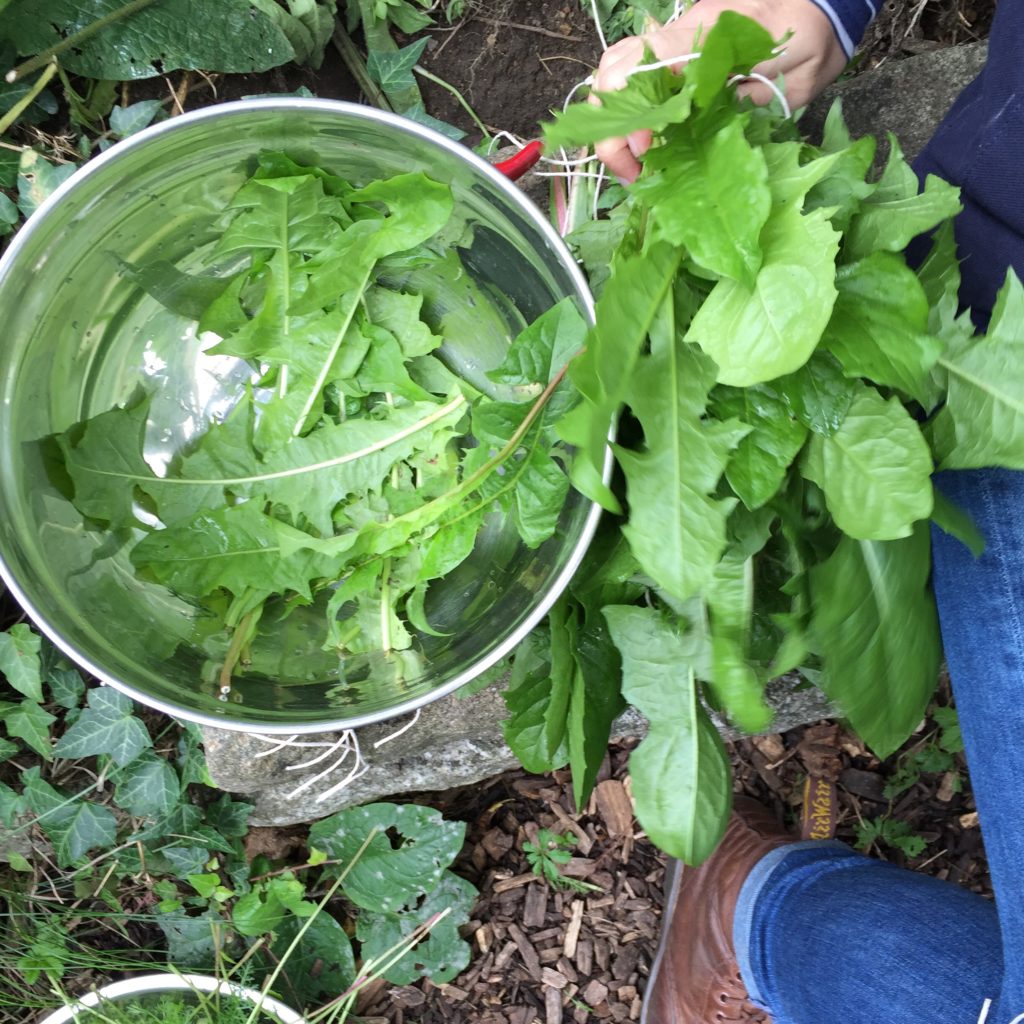
We constantly exploring different ways for people to engage and interact with this piece of land, connecting our communities with the bigger questions around mental health, climate change and resource distribution.
A few research projects have grown out oif the Phytology project including Urban Mind, GOOD Botanics and The Mobile Apothecary. In a sense, they’re all very different projects questioning and exploring different ways modern cities can better serve its populations (human/non-human).
GOOD Botanics and The Mobile Apothecary are very much about keeping herbal medicine practices within our culture. GOOD Botanics is a social enterprise. It looks to only use nutritious, high quality plant-based ingredients. Our recipes are age old, ingredient lists easy to understand, adding nothing more, nothing less than what is needed to support the body. Kind of like old fashioned cooking. The profits from GOOD Botanics directly support the Phytology medicine garden and The Mobile Apothecary project, paying community gardner wages and covering ingredient costs for the Mobile Apothecary.
The Mobile Apothecary is a growing network of volunteers spanning the areas of herbalism, horticulture and the arts. Since April 2019, we have been bringing people together to collectively learn about medicinal plants and create herbal medicine for distribution to fellow community members facing barriers to health, food, and shelter. The Mobile Apothecary supports communities in the locality with good-quality, homegrown and communally made herbal remedies.
The Mobile Apothecary also gives out products to people experiencing homelessness in London. Can you explain how you find those people, or do they find you?
Within the Mobile team there’s a lot of medical herbalists, horticulturalists and people that have experience making day-to-day plant-based medicines. We only use tried and tested recipes that are very clean, simple and effective. We predominantly use herbs grown within the Phytology medicine garden and a growing network of local her growers. Our products are made without unnecessary preservatives, relying only on natural preservatives such as honey, tincture, bees wax or plant/nut oils. We make our medicines in a kitchen out in Barking with a sister project called Company Drinks. It’s another artist-led cultural centre that looks at the production of drinks, soft drinks in particular. They’ve got a large kitchen that we use, and we work with the team to make up these medicines in that space.
The Mobile Apothecary has been distributing on a fortnightly basis for the past couple of years across Hackney & Tower Hamlets. We serve alongside food distribution partners — the Refugee Community Kitchen and Street Kitchens. Both organisations source food from supermarkets that might be wasted or they receive donations, and they have kitchens all over London where they prepare delicious vegetarian meals each and every week of the year.
There is naturally a diverse community that forms around these two provisions, food and medicine.
The Mobile Apothecary believe:
- Healthcare, encompassing physical and psychological health, is a fundamental right that should be accessible to all people.
- People have the right to basic knowledge and skills in herbal medicine and medicine-making.
- Human health and planetary health are intertwined.
The Mobile Apothecary project facilitates:
- Habitat & local urban environment connection.
- Collective ethical & sustainable growing, stewarding, and harvesting of plants.
- The making of medicines for some of the most vulnerable people within the community, with local resources and local hands. Collectively making herbal medicine strengthens bonds between people and local ecosystems.
You mentioned you also run a piece of academic research out of the garden called Urban Mind. Can you tell us more about that and its link to mental health awareness?
Urban Mind is a global research project exploring how urban and rural living is affects our mental wellbeing. This has been achieved by inventing a smart phone app (www.urbanmind.info) back in 2016. After downloading and installing the app on your smartphone, Urban Mind requires you to provide some basic information about your lifestyle and mental wellbeing. Once you have provided this, you will be asked to answer a series of questions about your current urban or rural environment, lifestyle and mental wellbeing, three times per day over a period of two weeks.
During each assessment you will also have the option of taking a photograph of the ground or floor where you are standing and/or a 8 second audio recording of your surrounding environment. These photographs and audio provide an incredible amount of useful information on our life in urban ecosystems. By collecting real-time data, we are able to better understand how different aspects of the urban environment is affecting our individual mental wellbeing. We hope that our research informs future urban planning and social policy aimed at improving design & health. This is a collaboration with project by King’s College London, landscape architects J&L Gibbons.
Urban Mind basically encourages individuals to monitor and record how the landscape makes them feel as they go about their day-to-day. The act of engaging with the app naturally encourages individuals to reflect on ways in which the urban environment affects our mental wellbeing and our social connection to place.
Over the years we have collaborated with over 15,000+ citizen scientists globally. Our research has become a game changer in terms of the way we understand our relationship with the world around us (ecology, social, architectural), using data to advocate for protection and enhancement of parks and urban forestry. Most importantly, it’s really shifted the lens on things that we took for granted and/or thought were anecdotal, such as the positive influence trees and bird song has on our wellbeing. The Urban Mind app has enabled us to validate and measure the benefits of the environment on our wellbeing, the first time this has been done globally on such a scale. Our research aims to help protect and resource green and blue spaces such as parks and canals. Ensuring these spaces are seen as critical infrastructure for our collective wellbeing, advocating for continued investment in these spaces, along with the incentive to create more green and blue spaces within neighbourhood plans.
SSM: How do our readers get involved with Urban Mind?
The app is free to download on both Android and iOS. There are several live research projects currently taking via the app, including a study into the mental health effects of COVID-19, the influence of air pollution on our mental health, and we’ve just finished a national citizen science led piece of research on how rivers and canals influence our mental wellbeing. This particular piece of research was in collaboration with The Canal and River Trust and 250 citizen scientists nationally.
The app is designed to collect real-time data from peoples lived experience. This approach is called ‘ecological momentary assessments’, providing a useful way to avoid recall bias. Recall bias is basically when you forget or adjust details of an experience when asked to self-report days or weeks after the event. All research participants are anonymous, and we don’t collect personal data that identifies any participating individual. This ensures participants can feel free to answer openly and honestly. We are also governed by strict research ethics ensuring our research data is never handed on to faceless third parties.
We have a website that shows bits of the live data as it builds globally (www.urbanmind.info). This is a very experimental and powerful research tool, based on simple questions such as ‘how do you feel’, ‘what do you see’ and ‘do you feel welcome and safe’. The process of answering these questions aims to impower individuals to think critically about their wider habitat and ways toinfluence positive change.
SSM:What about those who engage with the community garden, are you finding that they have a better connection to the land? And to their mental health?
Every Saturday we run volunteer sessions in the Phytology medicine garden. The sessions are a mix of tending to the plants and sharing knowledge on land care, foraging and medicine making. These sessions are oversubscribed, booked weeks in advance. There seems to be a growing appetite for this kind of work, especially since the pandemic. There is a real hunger to meaningfully connect with the land and while building meaningful links within neighbourhood networks. All of these elements contribute to improving one’s mental health and wider connections to place. So, the garden does all of these things, but we try to keep our work at a scale that it still remains very accessible and personal.
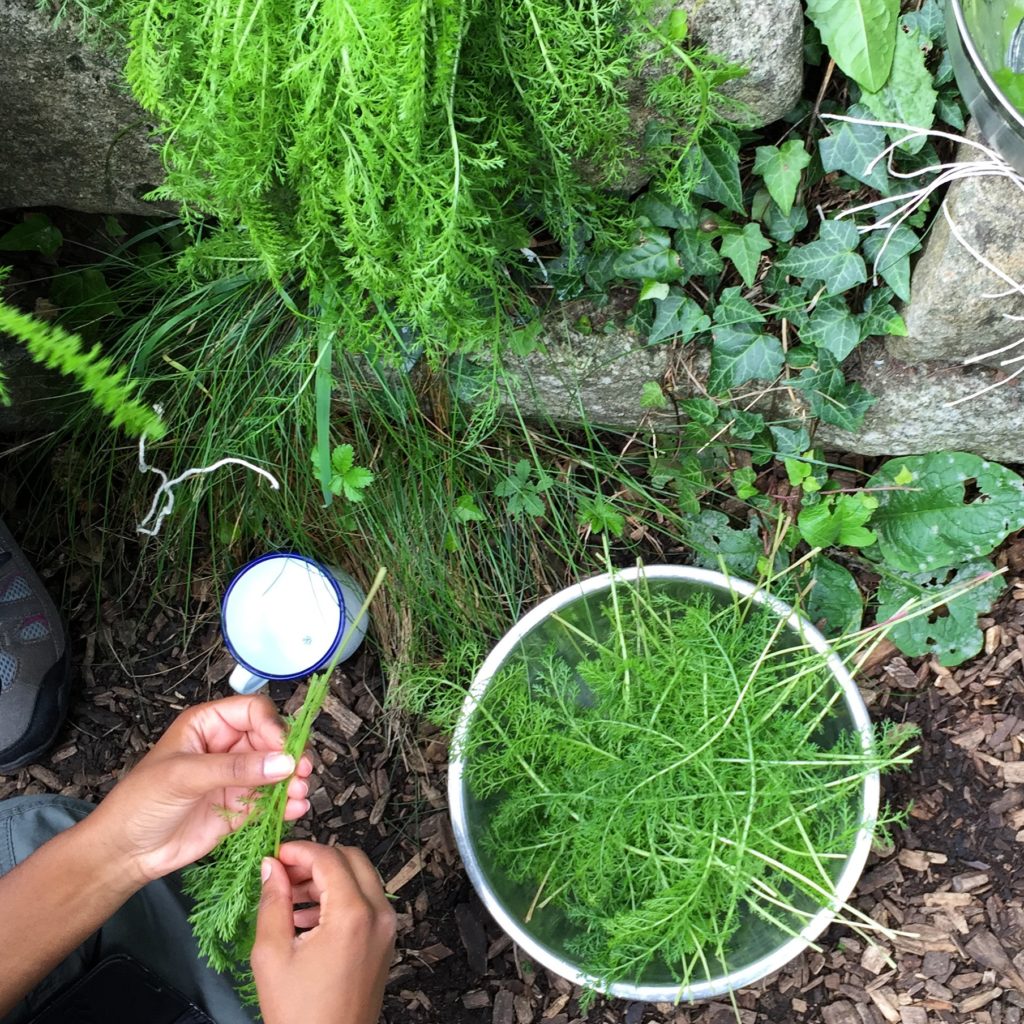
I believe we are all on an everchanging spectrum in terms of our mental health, so separating one individual or group from another is reductive. With reguards to the garden many people often say how this space benefits them, especially heightened over the past year.
How does art have a place in the community garden?
We hold annual artist research residencies within the garden. A place to test ideas and explore alternative working methods. For example, artist DJ Simpson was commissioned a few years back to develop a sculpture to support a dwindling bat population in our neighbourhood. He responded by designing a non-human architectural intervention intended to house a family of pipistrelle bats, an endangered species here in the UK. Simpson created the artwork in response to these remarkable mammals, an opportunity to create accommodate opportunities for Pipistrelle bats within the urban landscape. The artwork provides a functional way of occupying and protecting the community garden from development, benefiting much more than the human populations. Bats are an indicator of a healthy environment — they thrive in healthy spaces, so when there’s pollution stress they’re usually the first species to go, often for ever.
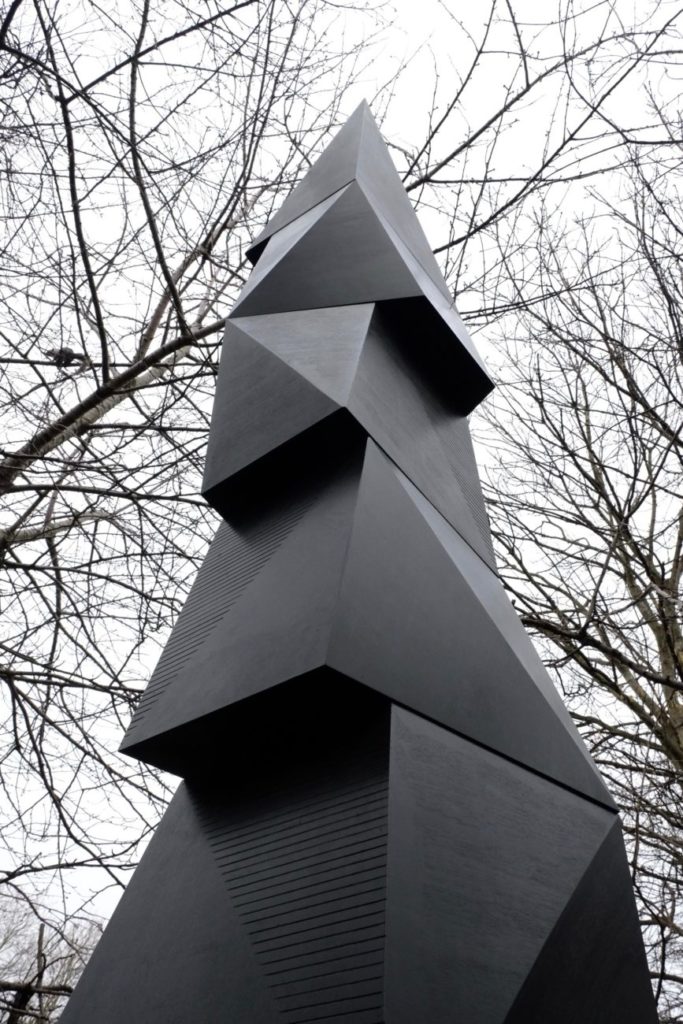
Within the garden, there’s also a billboard. It’s a sizable space to present ideas, an intentionally incongruous land mark within the overgrown site. The structure aims to challenge ideas of use, value and resilience of wildness within our urban ecosystem. It hold up ideas, bridging the woodland and hard edges of the city.
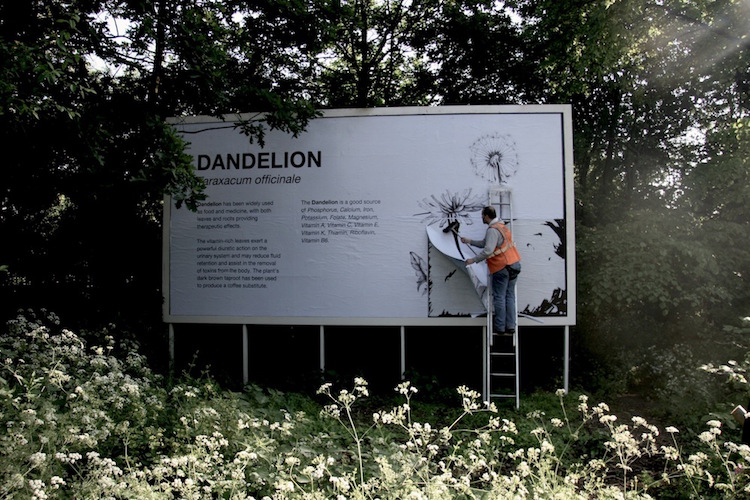
SSM: You say human health and planetary health are intertwined and it feels that as a concept that has gained popularity as a result of the pandemic. Can you just tell me a bit more about what that means to you?
One of the biggest challenges facing our species is the disconnection between ourselves and the natural world. I feel the dissociation and disconnection is where many problem lies in terms of climate change and environmental degradation.
If you don’t know what particular tree is, its name, what it offers in terms of holding the soil, oxygen production, carbon absorption, what food and medicine it produces, how it provides shade and helps to lowers the heat island effect experienced in cities, if you don’t see these things you’re less likely to love and advocate for their protection.
Babba Diaum, a Senegalese forestry engineer wrote ‘In the end, we will conserve only what we love; we will love only what we understand, and we will understand only what we are taught’.
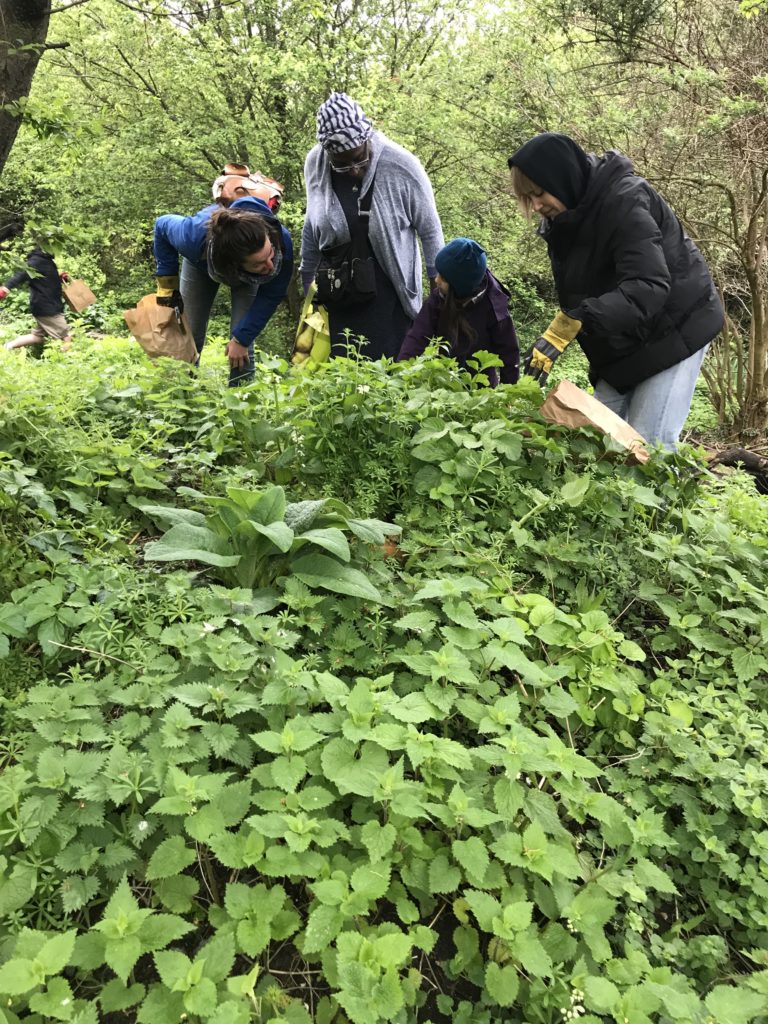
And I think that’s just a little metaphor for what’s happening with the planet in this moment in time. One of the roles I feel very passionate about with the Phytology project as a whole, including GOOD Botanics, is to encourage people to reconnect with the systems that are inherent to our bodies, inherent to our evolution as a species, inherent to our future as one of millions of organism living on this planet.
I feel personally, it’s especially important to feel a connection with the landscape, especially when living in a city. By encouraging urban dwellers to see the city as a landscape and to see them very much part of that landscape is important work, especially in the current times. This is why we say human health and planetary health are intertwined.

